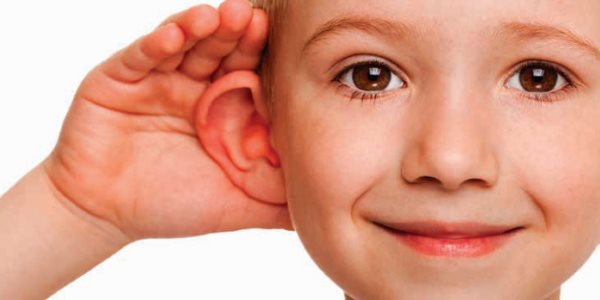Action for hearing loss : make a sound investment
This was the theme for World Hearing Day on 3 March, a day set aside by the World Health Organisation to raise awareness of the increasing incidence of hearing impairment.
360 million people worldwide have disabling hearing loss, of which 32 million are children. In South Africa the figure stands at 3,29 million people of which 28 500 are children, although if the global statistic of 15% of any population having hearing loss is applied to South Africa, this figure should stand at 7,8 million people!*
Hearing loss can affect everyone regardless of age, gender or race and unfortunately it seems to be affecting younger and younger people – 60% of childhood hearing loss is due to preventable causes, while 1.1 billion young people (aged between 12–35 years) worldwide are at risk of hearing loss due to exposure to noise in recreational settings.

Early identification of hearing loss is crucial in order to obtain the most benefit from interventions, thereby minimising the impact of hearing loss on the cognitive and educational development of the child. Lack of identification and follow up action, for whatever reason, has a tremendous financial impact; the global cost of unaddressed hearing loss is $650 billion per annum!
The first step is always to prevent hearing damage wherever possible but where loss has already occurred, the next step is to acknowledge that there is a loss of functional hearing. This is often difficult as the loss occurs so gradually that it goes unnoticed. Warning bells should sound when you hear people saying things like “Don’t mumble…Speak up!” or ask several times for a sentence to be repeated.
Hearing screening by a trained audiologist is the best way in which to determine the level of loss as well as the assistive technology which would most benefit the individual. Assistive technology includes hearing aid systems, cochlear implants, Bone-Anchored Hearing Aids (BAHA), sub-titles and captioning, lip reading, lip speakers, whisper interpretation, note-taking. Of course, these devices are of little use without ongoing hearing therapy and aural rehabilitation. As with any muscle in the human body, the brain must be exercised in order to remain at optimum level of functioning. Failure to do so (in this case by actively listening) will lead to the brain reaching a level where no amount of technological assistance will be of any benefit. Much like the saying “Use it or lose it”.
The South African Association of Audiologists (SAAA) recently embarked on a massive screening project at the Soweto Grace Bible Church on 3 March to celebrate World Hearing Day. The goal was to break the world record for the most hearing screenings on a single day! This goal was reached 1 hour before the official cut-off time – a total of 894 screenings were completed!

So, when last did you have your hearing tested, if ever? Make a sound investment in your future health by taking care of your ears and your hearing. Don’t become a statistic and make an appointment today with your closest audiologist (http://www.audiologysa.co.za).
Join us on Facebook at http://www.facebook.com/westerncape.apd should you like additional information on this subject or would like us to visit your organisation or workplace to speak about this topic.
* Source : StatsSA (population figures) & the World Health Organisation (hearing loss estimates)

